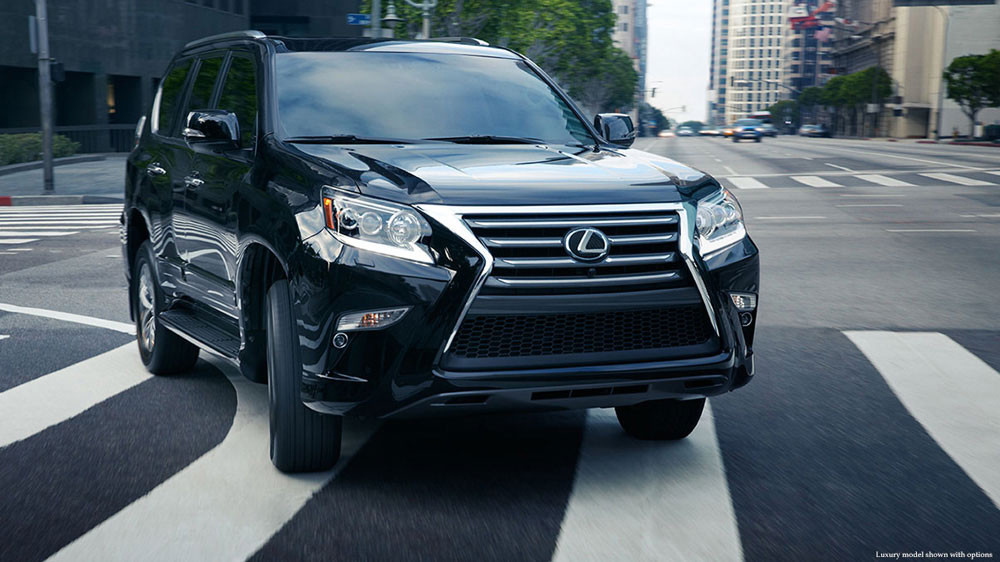USA
Lexus USA has reported 30,801 total sales for August 2017, a 4.1% decrease over last year — here’s the model-by-model breakdown:
| MONTH | Year to Date (*DSR) | |||||
| 2017 | 2016 | % CHG* | 2017 | 2016 | % CHG* | |
| CT | 204 | 819 | ‐76 | 4,572 | 6,183 | ‐26.1 |
| IS | 2,445 | 3,525 | ‐33.2 | 17,216 | 24,085 | ‐28.5 |
| RC | 665 | 1,065 | ‐39.9 | 4,286 | 7,334 | ‐41.6 |
| ES | 6,404 | 5,840 | 5.6 | 34,845 | 39,230 | ‐11.2 |
| GS | 689 | 1,228 | ‐46 | 4,894 | 9,898 | ‐50.6 |
| LS | 413 | 457 | ‐13 | 2,670 | 3,768 | ‐29.1 |
| LC | 291 | 0 | 0 | 1,449 | 0 | 0 |
| LFA | 0 | 0 | 0 | 1 | 6 | ‐83.3 |
| Total Cars | 11,111 | 12,934 | ‐17.3 | 69,933 | 90,504 | ‐22.7 |
| NX | 5,517 | 5,407 | ‐1.7 | 36,946 | 33,386 | 10.7 |
| RX | 10,391 | 9,701 | 3.1 | 66,760 | 67,635 | ‐1.3 |
| GX | 3,336 | 2,493 | 28.9 | 16,308 | 15,561 | 4.8 |
| LX | 446 | 403 | 6.6 | 3,516 | 3,306 | 6.4 |
| Total Trucks | 19,690 | 18,004 | 5.3 | 123,530 | 119,888 | 3 |
| Total Sales | 30,801 | 30,938 | ‐4.1 | 193,463 | 210,392 | ‐8 |
Please note, all percentages are calculated by the Daily Sales Rate (DSR), which takes into account the number of days in the month that dealerships could sell cars. August 2017 had 27 selling days, August 2016 had 26 selling days.
Lexus SUVs and crossovers set a new August sales record this month with a stellar performance across the board. On the other hand, the car lineup had a difficult time, with only the ES & LC showing any real signs of life — from the press release:
“Customers took advantage of our Golden Opportunity Sales Event and we were pleased to see Lexus sedans gain momentum for the month of August, most notably the ES,” said Jeff Bracken, Lexus group vice president and general manager. “We also saw a sales increase for the NX and GX luxury utility vehicles. As the new 2018 models begin to roll in, we expect strong sales as we head toward the end of the year.”
Canada
Lexus Canada set its 14th consecutive monthly record, with 2,086 luxury vehicles sold and an increase of 5.8% compared to last year. Even car sales are up — here is the full model-by-model breakdown:
| MONTH | Year to Date (*DSR) | |||||
| 2017 | 2016 | % CHG* | 2017 | 2016 | % CHG* | |
| CT | 29 | 27 | 7.4% | 314 | 343 | -8.5% |
| IS | 290 | 304 | -4.6% | 2208 | 2004 | 10.2% |
| RC | 56 | 64 | -12.5% | 344 | 362 | -5.0% |
| ES | 166 | 185 | -10.3% | 1268 | 1410 | -10.1% |
| GS | 21 | 30 | -30.0% | 218 | 280 | -22.1% |
| LS | 2 | 5 | -60.0% | 37 | 60 | -38.3% |
| LC | 32 | 0 | 0 | 93 | 0 | 0 |
| Total Cars | 596 | 615 | -3.1% | 4482 | 4459 | 0.5% |
| NX | 711 | 548 | 29.7% | 4800 | 3883 | 23.6% |
| RX | 731 | 720 | 1.5% | 5972 | 5149 | 16.0% |
| GX | 24 | 32 | -25.0% | 351 | 347 | 1.2% |
| LX | 24 | 57 | -57.9% | 663 | 456 | 45.4% |
| Total Trucks | 1490 | 1357 | 9.8% | 11786 | 9835 | 19.8% |
| Total Sales | 2086 | 1972 | 5.8% | 16268 | 14294 | 13.8% |


Comments